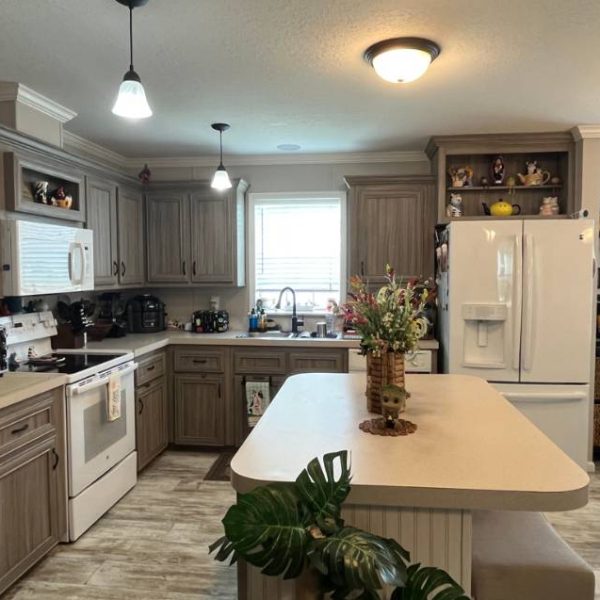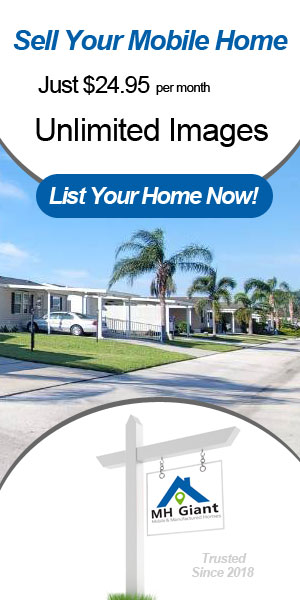Table of Contents
A Comprehensive Guide to Financing Your Mobile Home: What You Need to Know
Purchasing a mobile home can be an affordable and flexible housing option, but navigating the financing process can be complex. Unlike traditional homes, mobile homes come with unique considerations that affect financing options, interest rates, and loan terms.
This comprehensive guide will walk you through everything you need to know about financing your mobile home, from understanding the different types of loans available to preparing your finances and selecting the right lender.
Understanding Mobile Homes and Their Types
Before diving into financing, it’s crucial to understand what qualifies as a mobile home and the different types available.
- Mobile Homes vs. Manufactured Homes:
- Mobile Homes: Generally, homes built before June 15, 1976, are referred to as mobile homes. These homes were built without a standardized code, making them less uniform in construction quality.
- Manufactured Homes: Homes built after June 15, 1976, are called manufactured homes. They are constructed according to the HUD (U.S. Department of Housing and Urban Development) Code, ensuring safety, durability, and efficiency standards.
- Single-Wide vs. Double-Wide:
- Single-Wide Homes: Typically narrower and more affordable, single-wide homes are easier to move but offer less space.
- Double-Wide Homes: These are wider and often come with more amenities, but they are more expensive and require more space.
Different Types of Financing for Mobile Homes
Unlike traditional site-built homes, mobile homes can be financed in several ways. The type of financing you choose depends on factors like whether you own the land, the age of the home, and your financial situation.
- Personal Loans:
- Pros: Personal loans can be a good option if the mobile home is older or if you don’t qualify for traditional mortgage loans. These loans are unsecured, meaning you don’t need to use the home as collateral.
- Cons: Personal loans typically have higher interest rates and shorter repayment terms compared to other financing options.
- Chattel Loans:
- What It Is: A chattel loan is a loan specifically designed for movable property, such as a mobile home. If you do not own the land where the home will be placed, a chattel loan may be your best option.
- Pros: These loans usually have shorter terms, meaning you’ll pay off your debt quicker. They are easier to qualify for than traditional mortgages, especially for older homes.
- Cons: Interest rates are generally higher than those for traditional mortgages. Also, chattel loans usually do not cover the land, which could be a disadvantage if you plan to purchase both the home and the land it sits on.

- FHA Loans:
- What It Is: The Federal Housing Administration (FHA) offers loans specifically for manufactured homes, known as Title I and Title II loans.
- Title I Loans: Used for financing just the mobile home and not the land.
- Title II Loans: Can be used to finance both the home and the land.
- Pros: FHA loans typically come with lower down payment requirements and competitive interest rates. They are government-insured, which provides lenders with more security.
- Cons: There are strict eligibility requirements, including the need for the home to meet specific HUD standards. The process may be more time-consuming due to the additional paperwork.
- What It Is: The Federal Housing Administration (FHA) offers loans specifically for manufactured homes, known as Title I and Title II loans.
- VA Loans:
- What It Is: If you’re a veteran, you may qualify for a VA loan to finance your mobile home. These loans are backed by the Department of Veterans Affairs.
- Pros: VA loans often require no down payment and have competitive interest rates. They also come with fewer fees and favorable terms compared to other loans.
- Cons: Not all mobile homes will qualify for a VA loan, especially if they don’t meet the minimum property requirements set by the VA. Additionally, the process can be lengthy.
- Conventional Mortgages:
- What It Is: In some cases, a mobile home can be financed with a conventional mortgage, particularly if it is permanently affixed to land you own.
- Pros: Conventional mortgages usually offer lower interest rates and longer terms, which can make monthly payments more manageable.
- Cons: The home must be classified as real property, meaning it is permanently attached to the land. The underwriting process is typically more stringent, requiring higher credit scores and a larger down payment.
- Rent-to-Own Agreements:
- What It Is: A rent-to-own agreement allows you to rent the mobile home with the option to buy it after a specified period.
- Pros: This can be a good option if you have poor credit or need time to save for a down payment. Part of your rent payment may go toward the purchase price.
- Cons: Rent-to-own agreements can be complex and often come with higher monthly payments. There is also the risk of losing the option to buy if you fall behind on payments.
Preparing Your Finances
Before applying for a loan, it’s essential to get your finances in order to improve your chances of approval and secure better loan terms.
- Check Your Credit Score:
- Your credit score is a significant factor in determining your loan eligibility and interest rates. Check your credit report for errors and work on improving your score if it’s low. Aim for a score of 620 or higher to qualify for most loans.
- Save for a Down Payment:
- While some loans, like VA loans, may not require a down payment, others will. The larger your down payment, the lower your loan amount, which can reduce your monthly payments and interest costs. Aim to save at least 5-20% of the home’s purchase price.
- Reduce Debt:
- Lenders will evaluate your debt-to-income ratio (DTI), which is the percentage of your monthly income that goes toward debt payments. A lower DTI will make you a more attractive borrower. Pay down existing debts to improve your ratio.
- Gather Necessary Documentation:
- Be prepared to provide documentation such as tax returns, pay stubs, bank statements, and proof of assets. Lenders will need these to verify your financial situation.
Choosing the Right Lender
Selecting the right lender is crucial in the financing process. Here are some tips to help you find the best lender for your needs:
- Research and Compare Lenders:
- Start by researching lenders that specialize in mobile home financing. Compare their loan options, interest rates, and terms. Don’t be afraid to shop around and get quotes from multiple lenders.
- Check for Special Programs:
- Some lenders offer special programs for first-time buyers, veterans, or those with lower incomes. These programs may come with benefits like lower interest rates or reduced fees.
- Read Reviews and Testimonials:
- Look for reviews and testimonials from other borrowers. This can give you insight into the lender’s customer service, responsiveness, and overall satisfaction.
- Ask Questions:
- Don’t hesitate to ask the lender questions about the loan process, fees, and any potential pitfalls. A good lender will be transparent and willing to help you understand your options.
Understanding the True Cost of Financing
When financing a mobile home, it’s important to consider all the costs involved, not just the loan amount. Here’s what you need to keep in mind:
- Interest Rates:
- Interest rates vary depending on the type of loan, your credit score, and the lender. A lower interest rate can save you thousands of dollars over the life of the loan.
- Loan Terms:
- Loan terms refer to the length of time you have to repay the loan. While shorter terms often come with higher monthly payments, they can save you money on interest. Longer terms may result in lower monthly payments but can increase the total cost of the loan.
- Additional Fees:
- Be aware of additional fees such as origination fees, closing costs, and mobile home insurance premiums. These can add up and impact the overall affordability of your mobile home.
- Property Taxes and Insurance:
- If you own the land where your mobile home is located, you’ll need to factor in property taxes. Additionally, mobile homes require insurance to protect against damage or loss.
Final Thoughts
Financing a mobile home requires careful planning and consideration of your financial situation and the available loan options. By understanding the different types of loans, preparing your finances, and choosing the right lender, you can secure the financing that best suits your needs.
Remember, buying a mobile home is a significant investment, so take the time to do your research and make informed decisions. Whether you’re a first-time buyer or looking to upgrade, the right financing can make your dream of owning a mobile home a reality.

